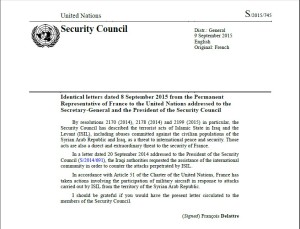[Kai Ambos is Professor for Criminal Law, Criminal Procedure, Comparative Law and International Criminal Law at the Georg August Universität Göttingen, Judge at the District Court in Göttingen, Director of the Centro de Estudios de Derecho Penal y Procesal Latinoamericano (CEDPAL) of Göttingen University and has worked in Colombia in various capacities over the last 25 years.]
On 23 September, the Colombian President Juan Manuel Santos achieved a major breakthrough in the peace negotiations with Latin America’s oldest guerilla movement, the “Revolutionary Armed Forces of Colombia People’s Army” (FARC). After over three years of negotiations and reaching agreement in principle on other, less controversial matters (land reform, political participation and the drugs problem), the question of how to deal with the crimes committed by the parties to the conflict – especially by the FARC – remained the last and greatest obstacle to the successful conclusion of negotiations. Now, the FARC – much to the astonishment of many observers – have accepted the creation of a “Special Jurisdiction for Peace”. Essentially, this special jurisdiction’s aim is to ascertain the criminal accountability of all parties involved in the armed conflict with a dual procedural model: those actors who submit to the new jurisdiction of their own volition and confess to their acts can expect a maximum – so-called alternative – sanction of up to eight years, while those who refuse to cooperate will be subject to ordinary criminal proceedings ending in a prison sentence of up to 20 years. All concerned must contribute actively to the ascertainment of the truth, to the reparation of victims, and to guaranteeing the non-repetition of the crimes committed. A truth commission will – at long last – be established. The FARC must lay down their weapons at the latest 60 days after the signing of final accord, which is planned for 23 March 2016. The agreement makes a distinction between (political) crimes for which amnesty is possible and the core crimes under international criminal law, namely genocide, crimes against humanity, and serious war crimes, for which there is no amnesty. In return for submitting to the abovementioned special jurisdiction, the FARC is granted the status of a political movement.
While the agreement marks a key step towards achieving lasting peace in Colombia, it also raises some difficult legal and political questions that may – apart from the short period until 23 March 2016 – hinder its implementation. As far as the composition of the abovementioned special jurisdiction is concerned, the accord in principle follows the model of the so-called “hybrid” tribunals created in other transition processes, albeit with three “Salas previas” (kinds of pre-trial chambers) – responsible for fact-finding, amnesties and pardons and the determination of the legal situation of the respective responsible individual – and the more important “Tribunal para la Paz” (Tribunal for Peace), which will conduct the main trials. The structure is not set out clearly in the public part of the agreement. It is clear, however, that the judges will mainly be Colombians – insiders speak of 20 – , with a small number of foreigners (three to five). Here, the key question is: how will these judges be selected? Besides their professional suitability, the main concern will be their neutrality towards and independence from the parties to the conflict, which will make the selection of the Colombian judges quite a challenge, given the fact that the Colombian judiciary is highly politicised. The case is similar for the selection of the members of the abovementioned truth commission.
As regards the ratione materiae jurisdiction, any amnesty is excluded not only for the core crimes mentioned above (albeit with the qualifier “serious” for war crimes), but also for individual acts such as forced expulsion, forced disappearance, torture and – very broadly – “sexual violence”. The explicit prohibition of amnesty was welcomed by the Chief Prosecutor of the International Criminal Court (ICC), but it goes beyond the crimes contained in the Court’s Statute and thus beyond the prohibition of amnesty recognised under international law. Otherwise, as broad an amnesty as possible – pursuant to Art. 6(5) Additional Protocol II to the Geneva Conventions – will be granted for political and related offences (“delitos políticos y conexos”). The opposition, led by former President Álvaro Uribe and the Prosecutor General (Procurador General) Ordóñez Maldonado, have already criticised in this respect that the crimes of drug trafficking and kidnapping could be granted amnesty as “related offences” according to this approach. While this is indeed the case, it neither is prohibited under international law nor under Colombian law. On the contrary, it is in line with the special political offence tradition enshrined in Colombia’s legal history and Constitution. Indeed, the Colombian Supreme Court has explicitly acknowledged that the offence of drug trafficking is not excluded from the transitional justice regime (Judgment of 30 April 2014, Sala de Casación Penal, case no. 42534) and, furthermore, that it is linked to the offence of rebellion if it serves to finance the armed struggle (Concepto de extradición CP117-2015 of 24 September 2015).
As to the ratione personae jurisdiction, in principle all parties to the conflict, including the members of the state security forces, will be subjected to the special jurisdiction, but the prosecution will need to concentrate upon the main persons responsible – in accordance with international practice. This is not stated explicitly in the agreement, but can be deduced from its reference to “the most serious and representative acts” and “cases”.
The most difficult and controversial issue is that of the enforcement of the abovementioned sanctions. In their public statements, the FARC leaders have repeatedly made it clear that they would not accept a usual prison sentence in a normal detention facility; however, they appear to have yielded in this regard also. Strictly speaking, the agreement sets out a threefold differentiation, whereby any sanction must include “an element of restriction of liberty”: those who admit their acts will receive the abovementioned alternative punishment of between 5 and 8 years, with the type of enforcement depending on whether the individual concerned has admitted to their acts immediately or only “later” (“tardía”). which needs to be determined more precisely. In the first case, the punishment is enforced under “special conditions”, and in the second under “ordinary conditions”. These “ordinary conditions” will also be applied to those who refuse to cooperate and can thus expect a prison sentence of up to 20 years. Accordingly, it seems clear that only those who confess at once can expect special treatment, that is, to serve their sentence outside a normal detention facility. The Colombian legislator will have to determine the exact details of these special conditions, with international (criminal) law leaving a broad margin of appreciation.
As it stands now, there are no objections to the agreement from the point of view of international law, and the ICC will also be happy with it. Of course, the much more detailed basic document which contains 75 points has not been published so far. In any case, on the domestic front the main concern will be less with international law and more with the Colombian population’s political acceptance of the agreement. Ultimately, this can only be achieved by a referendum.
The author is grateful to Margaret Hiley, M.A., Ph.D., for her assistance in the preparation of this English version.


 Print This Page
Print This Page


